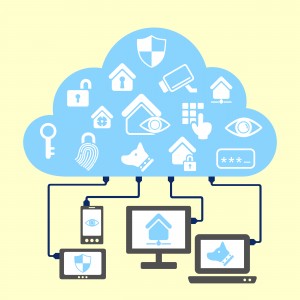U nless you have been living under a rock for the past few weeks or just got back from a trip to
nless you have been living under a rock for the past few weeks or just got back from a trip to
the moon, you have certainly heard of, and perhaps even played the latest app craze, Pokemon
Go! You might know all about Pokestops and Lures and training your Pokemon. But did you know that all the fun you’re having comes at a price? Read more…

“Bzzz bzzz bzzz…”
“Gotta smack it to stop it”, the not-yet-awake thought floods Tim’s mind.
“Presentation at 10:00 today” Now this new, more urgent thought hits him like a runaway train
and he jumps out of bed.
Hastily, he throws on his clothes and grabs his coffee. He has to run through his notes and slides one last time before the big meeting in just a few hours.
Skirting to his laptop, he turns it on, and after a moment, he is greeted by the following message with the force of a ton of bricks:
“Hi! Your files have just been taken ransom with a really strong form of encryption. If you ever want to see your data again, please create a Bitcoin wallet and pay your unlock fee
of 1 BTC within 48 hrs. After you have paid, we will unlock the files with the correlating
key. Don’t attempt to unlock the files yourself, It’s impossible.” Read more…
 Knowledge. Innovation. Connection.
Knowledge. Innovation. Connection.
These might seem like typical 21st century buzzwords – after all, they pretty much sum up where we are on the “You are Here” marker on that giant mall map of time. But far from just empty words that people say to sound trendy, these three traits capture the essence of what powers one of the most important and complex tools mankind has ever dreamed up – the Internet. In the same way that it’s super difficult to envision how it could possibly be that we have, on average over 24 feet of intestines wound up inside our bodies, and that if you fold a regular piece of paper 40 times, it would reach to the moon, it’s can be pretty hard for us to envision the scope of the interconnected cables, routers and frequencies used to bind all the world’s networks into one cohesive unit. But for better or for worse (mostly better), it’s massive and complicated, and it’s here to stay. Read more…
 Just imagine the scene.
Just imagine the scene.
You’re diligently fulfilling your duties at work, not paying attention to much else when the following email lands in your inbox:
To:(insert your own name here)
Subject: Mid-2016 salary increases
Attach: 2016-SI.doc
The body of the email reads:
“Look what I got ahold of! By the way, for your eyes, ONLY.”
You rub your eyes and stare for a second. Did someone really just send you a list of employees who will be getting mid-year increases??
You’re thinking “I gotta read this!” and your fingers are getting ready to click that link but as you move your mouse closer to the attachment, a tiny voice inside you screams “Wait!” (bah, humbug.)
Is this attachment what is seems or is it possibly something really, really dangerous?

If you regularly read the ZoneAlarm blog, you might think you know all there is to know about keeping safe from scams and tricksters on the internet. You know how to keep your online identity protected, and to be wary of shortened URLs. And you probably have a pretty good idea of how to avoid clickbait (though you may be dying to click that link….) In fact you probably can’t even understand how anyone could ever fall prey to such scams – You might even think that people who do get tangled up in scams have a few loose screws or deserved to get messed over as a punishment for being so gullible.